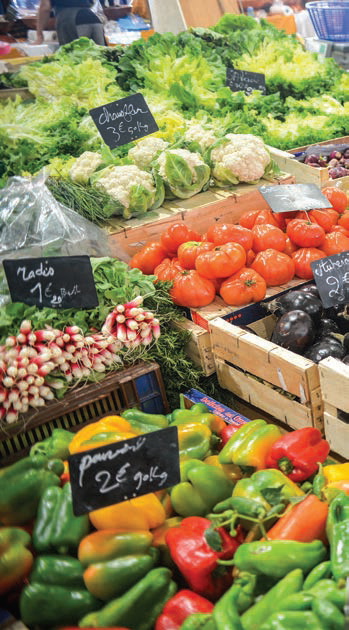Lorcan Bourke, Sector Manager, Horticulture with Bord Bia explores how rising environmental awareness is impacting consuming habits and the future direction of food production
At the recent UK Fresh Produce conference, the KANTAR UK presentation highlighted how global sustainability is increasingly becoming a public concern and will have a significant impact on farming and the way we eat in the future. British Government recommendations are now considering sustainability in healthy eating initiatives and putting produce centre stage. While the classic food pyramid evolves towards recommending consuming more fresh produce (fruit, veg and potatoes) and consuming less processed foods, new food pyramids are emerging, evaluating the sustainability credentials of all foods.
The knock-on effect of increased consumer awareness of both consumption and sustainability has manifest itself in real behaviour changes and has given rise to the growth of plant-based meals in the UK. There has been a 21% growth increase in plant-based meals in the UK since 2015 (£1.1bn market).
Strict veganism only accounts for a small percentage of all plant-based meals. In the UK, the growth in plant-based meals is coming from the wider population – with only 14% of plant-based meals being consumed by vegans and 11% of meat-free meals being consumed by vegetarians. The two important factors that UK ‘Flexitarians’ cited for their reduced meat consumption were: 81% Health and 39% the Environment.
UK studies have found that some vegetable sales are more reliant on meat than others. Vegetables that are more likely to be consumed in a meat-free meal include tomatoes, cucumber, garlic, celery, lettuce and courgette (all with a combined market growth +5%). Vegetables that are more likely to be consumed in protein meals include potatoes, onions, carrots, peas, mushrooms and broccoli (with combined market decline -1%).
WHAT’S NEXT FOR PREPARED FRUIT AND VEGETABLES?
Fresh whole veg is driving produce value growth in the UK market. Whole piece fruit is increasing in value too. Fresh prepared salads/veg remains a small part of the produce market worth £1.4bn (-3.2%), but is currently struggling in the UK– the total produce market (including prepared) is worth £12.6bn (+2.2%).
Across most retailers, fresh whole produce is prospering at the expense of prepared. There are two macro trends driving this:
1. A movement towards scratch cooking for financial, health and ethical reasons, affecting prepared veg in particular. Example: When asked: “How would you make economic savings at home?”; 26% said they would cook more (relying less on prepared food). Growth in scratch cooking is coming most strongly from families.
2. Concern about plastic – the ethical element of the move towards scratch cooking. People want to buy less produce with plastic wrapping/packaging. People are becoming more concerned about single-use plastics.
 More people are planning to shop more sustainably – with 70% declaring in a recent study that they plan to switch or use less. British shoppers aren’t just moving to the whole veg because they’ve developed a conscience – price is important. Falling promotions in the prepared veg/fruit sector are playing a big role in the category’s decline. There is a similar pattern in prepared fruit. The price gap between prepared and the whole veg is at its lowest in 5 years (£3.12/kg). So promotions aren’t a long term solution.
More people are planning to shop more sustainably – with 70% declaring in a recent study that they plan to switch or use less. British shoppers aren’t just moving to the whole veg because they’ve developed a conscience – price is important. Falling promotions in the prepared veg/fruit sector are playing a big role in the category’s decline. There is a similar pattern in prepared fruit. The price gap between prepared and the whole veg is at its lowest in 5 years (£3.12/kg). So promotions aren’t a long term solution.
Kantar suggests that if consumers are scratch cooking more, produce companies need to make it easy with ‘assisted scratch’ veg and fruit items. Several factors indicate this is not just a short term dip but a long term trend – the public are scratch cooking for health reasons too. The category is seen to need genuine innovation that adds value and is more sustainable than current options.
The conclusion of the discussion was that the UK public are becoming increasingly concerned with sustainability and health and diets are evolving as a result. Fresh produce companies were advised to promote both factors in tandem and provide the public with the transparency to make their own life choices. Prepared produce (and vegetables in particular) are facing a ‘perfect storm’ of consumer reaction against plastic, a move towards scratch cooking, and fewer promotions. ✽
  |







